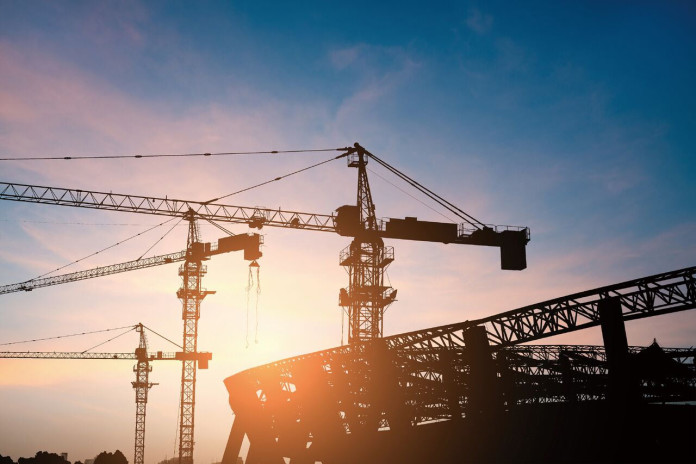It is difficult to resolve construction disputes efficiently and effectively by means of litigation, due to the complexity of factual aspects, the length of contractual performances and inconsistencies of related practices. Based on party autonomy in the process, the feasibility of having arbitrators with expertise and the finality of the award, arbitration may well be a better way to resolve construction disputes. As one of the leading arbitration institutions in the Asia Pacific, the construction disputes the Beijing Arbitration Commission/Beijing International Arbitration Center (BAC/BIAC) handled accounted for 12.5% of its case load in the past five years, with the amount involved totalling RMB26 billion. This article tries to disclose briefly the BAC/BIAC tribunal’s discretion in these construction disputes.

Discretion. The power of arbitral tribunal is restricted by parties’ autonomy, while the finality of arbitral awards will profoundly affect the outcome of the dispute resolution. As such, a tribunal has to clarify the scope of arbitration carefully and decide disputed matters in order to avoid arbitral awards being challenged in subsequent judicial reviews.
For example, where a tribunal decides if the financing, loans and equipment leasing during the construction period fall within the scope of arbitration, or where a tribunal is considering if executed construction works beyond the prescribed scope of work are changes of work by agreement under the construction contracts, evidence, the feasibility of other remedies, and the cost-effective consideration of dispute resolution all play roles in the tribunal’s discretion. The discretion has to follow the common sense of current judicial practice.
Expertise. Having arbitrators with expertise makes arbitration advantageous relative to litigation. This is especially true in construction disputes. In the BAC/BIAC’s construction caseload, the arbitral tribunal usually includes a technical engineer, a cost engineer and a legal expert. It is not common to rely solely on a third party’s appraisal for a tribunal to decide the construction costs. Most arbitral tribunals are capable of making effective arrangements to clarify the concrete disputes of the construction costs. A few tribunals may even be capable of doing their own calculations of the construction costs, based on the evidence of parties involved. Such expertise greatly helps arbitral tribunals resolve efficiently and effectively disputes over construction costs.
Also, the expertise allows a tribunal to articulate its discretion where matters involve the precise understanding of construction works and application of laws. When a tribunal is able to consider the provisions of laws, regulations and even industry practices to come up with clear reasoning in the award from different angles, then parties tend to respect and honour the arbitral awards.
Fairness and equity. The confidentiality of arbitration, to a certain extent, allows arbitral tribunals to consider the uniqueness of each case (e.g., the contracting background, performance, liability, status quo, etc.). A tribunal cannot and does not need to make references to other cases or make stylized decisions on the same legal issues. For example, when parties raise questions about the validity of a widely adopted “pay-when-paid” clause, a tribunal may consider the length of period between the project’s completion, acceptance or project delivery and arbitration, the liability of the main contractor for delay in settling with the owner any payment or in lodging any claims against the owner, the proportion of the subcontract costs to the overall project costs, the overlap of the payment the owner already made to the main-contractor with the payment under the sub-contract and the main-contractor’s difficulty of obtaining evidence relating to construction costs from the owner, etc. Nevertheless, fairness and equity are paramount of all different considerations.
Respect of contract. Normally, the arbitral tribunals respect contract languages, as well as actual performances, to decide on disputes correspondingly. This practice is also confirmed by BAC/BIAC tribunals in construction cases. For example, the unbalanced quotation, a common negotiation and bargaining strategy in the construction field, is regularly challenged in BAC/BIAC cases. A tribunal, however, will not deny the validity of the quotation and reopen the bidding process if no serious injustice results from such a bidding process. In extreme circumstances, the arbitral tribunal will look further into the tenderee’s experience in organizing construction bidding, the participation of a specialized consulting firm and its performance in supervising the bidding process, and the severity of the outcome of such unbalanced quotations.
Similarly, it is also rare to deny the existence and validity of engineering orders and confirmation based on the complaint of invalidity of the contract or invalid authorization of a signatory.
Summary. In the construction disputes, the arbitral tribunals will address a wide range of specialized matters, including parties’ capacity, the validity of contract, the project cost, the right to be compensated in first priority, the project quality, the compensation of delay, etc. As far as the BAC/BIAC’s practice is concerned, in the past five years, the average duration of the arbitration process (from the constitution of the tribunal to the conclusion of the case) is 152 days and the people’s court has not set aside any of the awards in the cases. This clearly points to the advantages of arbitration as a better method of resolving construction disputes.
Ding Jianyong is the deputy secretary general and Liu Nianqiong is a case manager at Beijing Arbitration Commission/Beijing International Arbitration Center






















